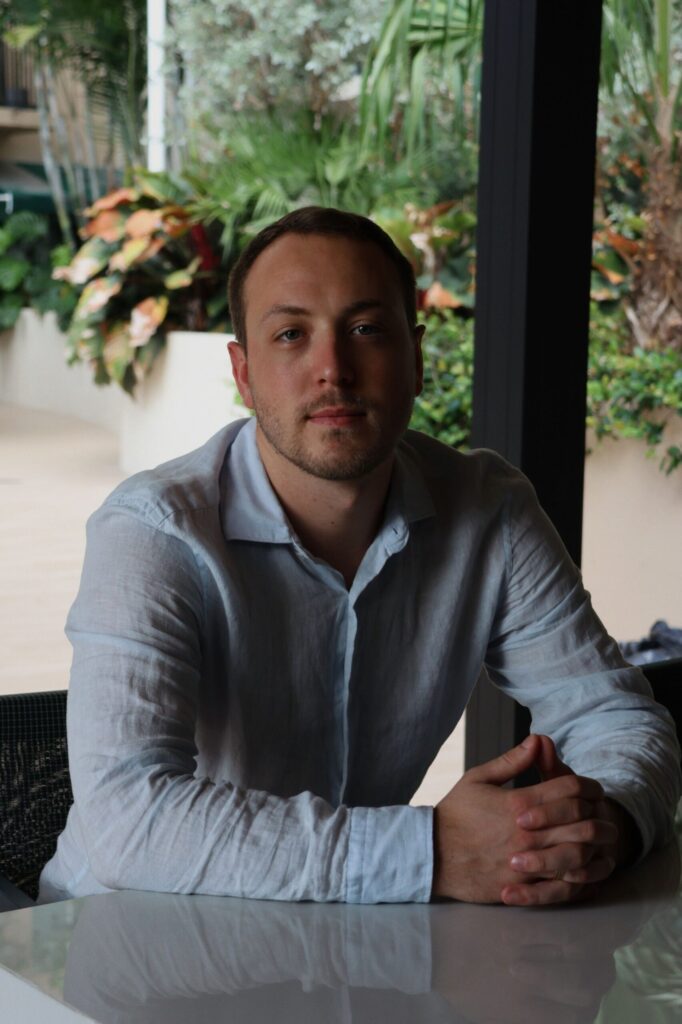In May 2024, Artem Kalashnikov was honored with the “Business Breakthrough 2024” award for his contributions to international entrepreneurship. This accolade recognized his remarkable achievements in the United States, where, within just two years, he transformed his startup, Tech Suppliers Pro, into an authorized partner of industry giants like Dell, Cisco, and Lenovo, achieving a monthly turnover of $100,000.
By the time he received the award, Kalashnikov’s accomplishments were impressive: 819 sales on eBay, a $5 million limit, authorizations from six major IT companies, and memberships in international organizations such as ECDMA and the Uhome business club. Most notably, he was invited to serve on the jury of the international “Era of Innovation” competition, marking his transition from market participant to expert evaluator.
This narrative challenges the conventional belief that expertise requires decades of experience. Kalashnikov chose not to wait, instead crafting a formula for accelerated recognition through a disciplined approach and MBA-level thinking. How did he evolve from a migrant to an international expert in just 24 months?

A Rational Decision to Act
Kalashnikov’s decision to change the course of his life came after a clear-eyed assessment. By late 2021, he realized, “The agricultural logistics market in Russia had reached its scalability and development limits for me.” Fifteen years in the industry had sharpened his skills but also capped his growth potential.
While preparing for relocation, he enrolled in an MBA program at Monroe University. This academic pursuit proved pivotal, providing him with confidence in strategic decisions and the tools to apply them.
Relocating his family to the U.S. was a major step, but Kalashnikov saw a broader horizon: “The U.S. is the largest B2B electronics market.” Rather than waiting for ideal conditions, he moved swiftly to create momentum in a dynamic industry.
His mindset was unconventional. While others believe, “I’ll gain experience and then become an expert,” he asked, “Why not create value now?”
He quickly grasped the difference in business culture. “In Russia, connections and informal incentives often drive decisions. In America, it’s about results and reputation,” he noted. The old rules didn’t apply — adaptation was key.
The MBA program gave structure to his intuitive ideas. “Academic frameworks helped me turn instincts into plans,” Kalashnikov explained. Courses in international marketing and strategic management made one thing clear: in the global market, results define expertise more than tenure.
Accelerated Launch Strategy
From the outset, Kalashnikov prioritized automation. Before landing major contracts, he “automated the supply chain using Inventory Source, built a website, and launched partner channels.” His mantra: “minimal costs, high service, automated processes.”
Rather than trial-and-error, he followed a carefully mapped approach. While others slowly optimized, he launched with a functional model that scaled quickly.
Next came the “human factor.” He emphasized personal service over faceless systems. “Personalized support, rapid feedback, flexible pricing” — this formula drew clients away from large distributors.
A Texas-based IT firm, one of many served by tech giants, opted to work with Kalashnikov because they received a dedicated consultant and strategic input for their IT planning.
Delegation was another core principle. “I created systems that run without constant oversight,” he said. His goal: to free time for learning and growing the business.
He also wasted no time turning practice into frameworks. In 2023, he published a guide titled “Diversifying the Supplier Business Model.” His MBA training helped transform hands-on experience into repeatable methods.
The vendor authorization process offers an inside look. “Dell vetted me for three months. They wanted background checks, financials, a detailed business plan,” Kalashnikov recalled. The main hurdle: proving end-client deliveries instead of resale through marketplaces.
“They were concerned about pricing and gray market risks. I had to document every sale.” Once Dell approved, others followed. “Cisco said, if Dell trusts you, so do we.”
Each step became a case study. Real-time experience was refined into usable knowledge.
The Cost of Speed
Moving fast came with errors. “At first, I over-automated and skipped verification. This caused losses on eBay due to pricing errors,” he admitted. The takeaway? “I now double-check key processes manually.”
His motto: quick mistakes are better than delayed perfection. MBA tools helped him mitigate risks. “I track margins, demand, and stock daily. No investments without data.”
By 2024, the metrics spoke for themselves: 819 sales, 273 positive reviews, a $5 million limit, six brand authorizations, and recognition from ECDMA, Uhome, and the Business Breakthrough award.
A Replicable Formula
The “don’t wait” mindset works under certain conditions: the ability to work fast, a foundation of useful skills, access to education, and a market that rewards responsiveness.
Key tactics included automating early, translating experience into insights, joining professional circles, and offering a personal touch.
Timing also matters. “Big companies adjust slowly. Small businesses can pivot in a week,” Kalashnikov said. That agility offsets lack of size or legacy.
Equally important is finding the right environment. The U.S. was ideal for this approach — results outweighed background. “American clients care about solutions, not resumes.”
Mentally, this path requires resilience. Continuous learning and decision-making amid uncertainty are essential. “Each day brought new problems without ready answers,” he said.
Progress was measured by both numbers and recognition: sales, clients, certifications, invitations, awards. Strategic reviews every 3–6 months helped fine-tune the path.
Kalashnikov’s story shows that acting early and thinking clearly can matter more than waiting for the “right” moment. He built trust through consistent results, not long resumes. The process wasn’t flawless, but his focus on learning and structure helped him move fast. Sometimes, starting is more important than being fully ready.
































